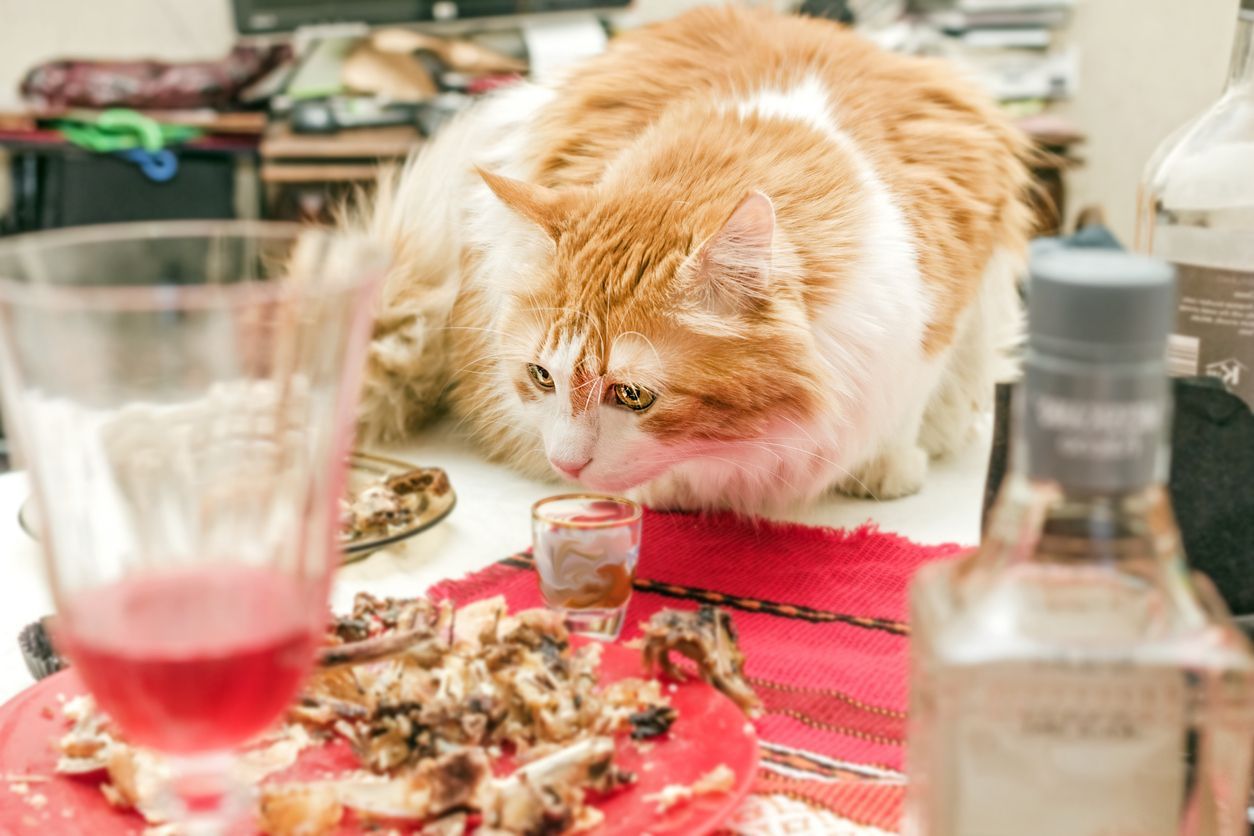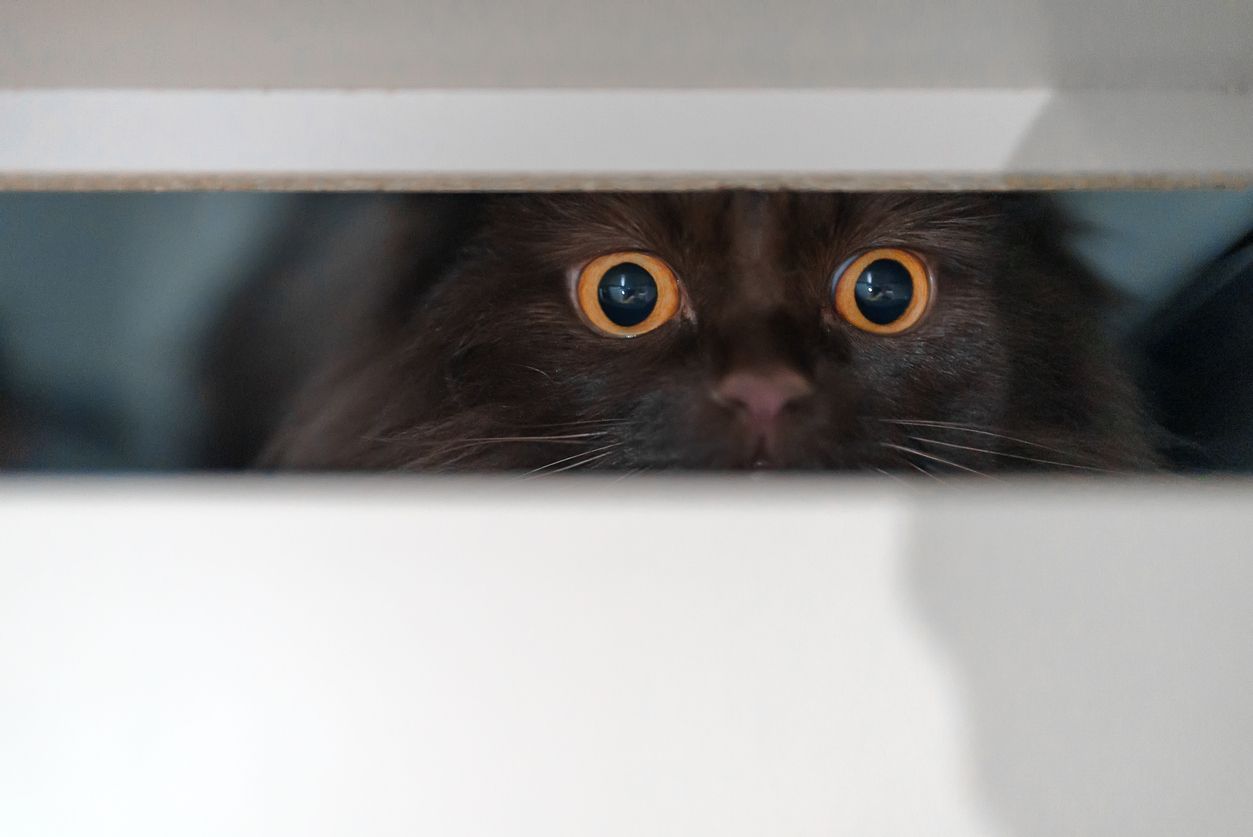What food is dangerous for cats: Thanksgiving and Christmas edition

Here comes that season again: Thanksgiving, Hanukkah, Christmas, Kwanzaa, plus whatever else you may be celebrating (Festivus, anyone?). And that means food — lots of it. From pumpkin pie to that honey-glazed ham you can never finish, you may find yourself with heaps of leftovers.
And while it may be tempting to enlist your cat to help finish it off — they’re part of the family, after all — some of the festive foods we so much enjoy are, in fact, toxic to cats. Luckily, cats are generally fussier eaters than dogs and are less likely to consume a toxic dose of a potentially dangerous food (although even dogs might not touch fruitcake).
But just in case, we’ll go over some common holiday foods you shouldn’t feed your cat, and some symptoms to watch out for should kitty get into something they shouldn’t have.
Fat trimmings and bones
Fat trimmings are meat, right? And cats, being carnivores, can eat anything that qualifies as meat — right? Nope. Wrong. Eating too much fat — cooked or raw — can cause intestinal issues and stomach upset.
What about bones? Well, bones aren’t toxic, but they do present some hazards. Cats can nibble large, sharp, or oblong pieces of a bone that can get lodged in their esophagus or elsewhere along the digestive tract. These indigestible chunks can cause intestinal blockages which are fatal without treatment.
Raw or uncooked meat
Again, despite being carnivores, raw or uncooked meat can be bad for cats. Just like it is for people. Raw meat can carry food-borne illnesses such as salmonella and E. coli.
So make sure you wash your hands after stuffing that turkey. A cat that’s consumed raw-meat residue can disrupt a dinner in a hurry.
Onions, garlic, leeks, scallions
Cats shouldn’t eat onions, leeks, scallions, or garlic. These vegetables damage red blood cells, and eating enough of them can lead to hemolytic anemia. The effects of this condition are not always immediately evident, and can include:
- Lethargy
- Loss of appetite
- Rapid breathing
- Pale gums
- Jaundice
Just like any other unusual food, these seasonings may trigger an upset stomach. Fortunately cats aren’t usually inclined to eat enough of these seasonings to develop a serious problem, but keep concentrated sources of onions and garlic out of reach from your feline friends.
Chocolate
Chocolate contains methylxanthines, theobromine and caffeine, all of which are potentially toxic to cats. Chocolate toxicosis results when a cat eats a toxic dose of chocolate. Chocolate toxicosis symptoms include:
Milk, cheese, and other dairy products
This one’s a bit surprising, isn’t it? Everyone knows cats love a dish of cream as sure as they adore a nap in the sun! But as it turns out, adult cats, like most other mammals, are lactose intolerant. And they react to dairy more or less the way humans who are lactose intolerant do.
If consumed in large amounts, dairy can cause stomach pain, vomiting, and diarrhea for cats. So you’ll have to share your eggnog with someone else.
Alcohol and caffeine
Caffeine toxicity can cause elevated heart rates, seizures, and diarrhea.
Alcohol contains ethanol which affects cats the same way as it does humans, but keep in mind a cat doesn’t weigh as much. Cats that have been exposed to alcohol may act like they’re drunk, and higher doses lead to alcohol poisoning. Symptoms include:
- Vomiting
- Trouble walking
- Disorientation
- Lethargy
- Loss of vision
- Seizures
- Slowed breathing
- Loss of consciousness
- Sudden death
Essentially, cats display the same signs of alcohol poisoning humans do, and after drinking very little of it.
Bread dough with yeast
Uncooked dough with yeast continues to ferment even after it’s been swallowed, and this produces alcohol. Large amounts of dough can produce dangerous amounts of alcohol as well as enough gas to cause potentially life-threatening intestinal distension. It’s best to keep kitty away from the kitchen while those dinner rolls are rising.
What to do when your cat eats something they shouldn’t
The severity of symptoms often depends on the amount of toxic food your cat has eaten. But if your cat has ingested any of the above foods or is showing signs of distress, call your vet right away. It’s always better to seek help sooner rather than later, and there’s no safe or effective way to induce vomiting for cats at home, so professional help is critical.
You can also schedule an online appointment through Vetster to determine if an emergency vet visit is necessary. Animal experts are available 24/7 and can observe your cat’s behavior in their natural environment to better discuss treatment options as well as safe human-food alternatives.
Remember, sharing isn’t always caring. So maybe leave the table scraps for the compost, not your cat, this holiday season.
SOURCES
https://www.paradiseanimalhospital.com.
https://www.merckvetmanual.com




